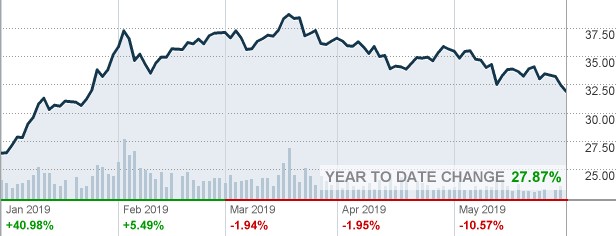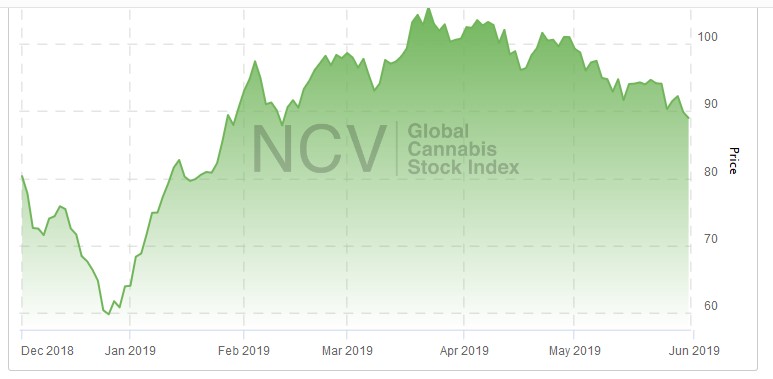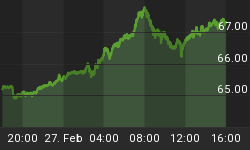Despite enjoying general public acceptance, pot companies have had to endure more than their fair share of criticism, distrust and rejection by the top brass in the investing universe. Wall Street naysayers abound, including Hindenburg Investment Research and Quintessential Capital, famous activist short-sellers, who last year published an incriminating report on one of the industry’s heavyweights, Aphria Inc.(NYSE:APHA), christening the company as a “shell game with a cannabis business on the side”. Meanwhile, Al Rosen, founder of forensic accounting firm Accountability Research Corp., has deemed the industry’s accounting practices as being merely “audited hallucinations”.
And, until recently, even middle-market banks were not willing to touch them with a 10-foot pole, fearing for their precious public images.
Yet, amidst all the animus, marijuana companies have increasingly been finding acceptance and even winning critical acclaim.
There’s been no shortage of high-profile M&A deals in the industry, mainly featuring tie-ups with booze and tobacco players, while banks and even some short-sellers have been won over. And now even famously persnickety Wall Street players are beginning to buy into the legalization narrative. In it’s latest Form 13-F, Goldman Sachs Group (NYSE:GS) has announced that it has acquired a stake in ETFMG Alternative Harvest ETF (NYSE:MJ), about the only exchange-traded fund created specifically for U.S. investors.
That represents a major seismic shift in the way Wall Street has handled the legal marijuana industry.
Wall Street opening up to ganja
Goldman Sachs is by no means the first large financial institution to seek deep ties with the legal weed industry with Canaccord Genuity and Cowen (both middle-market banks) as well as hedge-funder Tiger Brands all having beat it to the punch. Actually GS is on record as having played an advisory role in the $190-million purchase of 10 percent stake in Canopy Growth Corp. (NYSE:CGC), the world’s largest publicly traded pot stock, by U.S. beer-maker, Constellation Brands, Inc. (NYSE:STZ). Goldman also played an unspecified role in the $350-million raise for GW Pharmaceuticals plc (NASDAQ:GWPH).
However, it stands out as the first Wall Street bank to openly endorse the industry by actually acquiring securities. To be sure, GS’ $1.68 million stake in the $1.2-billion ETF really is a drop in the bucket both for the security and the bank’s $330-billion portfolio. However, it clearly suggests that Wall Street could be rethinking its hardline stance on the burgeoning industry. Related: What To Expect As Driving Season Kicks Off
And, why not? The cannabis industry has continued being red-hot even in the current tepid stock market that is overburdened with trade war worries as well as never-ending fears of a full-blown market downturn (hey, people still need to receive their daily dopamine fix - recession or no recession - right?). MJ ETF has seen its ups and downs this year, but is still up 27.9 percent rise in the year-to-date, more than double the 11 percent return by the broad-market S&P 500 Index.
ETFMG Alternative Harvest ETF YTD Returns

Source: CNN Money
Despite losing some luster in recent times, marijuana stocks in general are up nearly 40 percent over the timeframe according to the industry benchmark, the Global Cannabis Stock Index.

Source: New Cannabis Venture
Of course, much of those gains are being fueled by the ongoing legalization drive, with signs pointing to eventual U.S. legalization perhaps in the not-so-distant future. The legal weed industry might still be considered infantile, yet at $150 billion (revenues) it already rivals the global EV industry which has enjoyed considerably longer growth runways. The rapid influx of companies involved in the study, production and distribution of legal cannabis is mainly to thank for the rapid expansion the industry has been enjoying.
Despite the obviously warm glow brought by Wall Street’s ongoing acceptance, it’s important for investors to avoid getting ahead of themselves. The industry is at this point considered overcrowded and a shakeout could be looming. Also, bear in mind that all MJ ETF holdings operate in full compliance within their respective federal jurisdictions, meaning stateside investors might still have limited access to even successful multi-state operators.
By Alex Kimani for SafeHaven.com
















